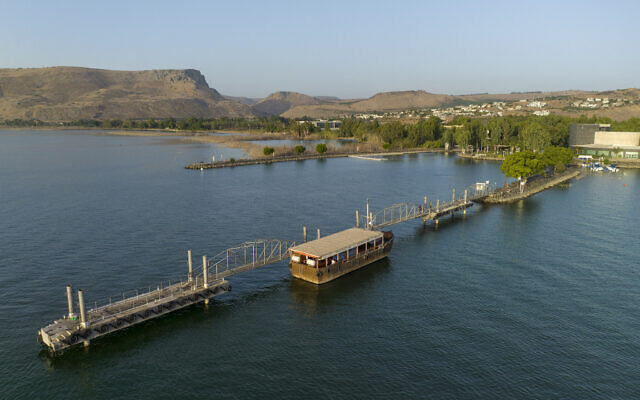Israel is experiencing its driest winter in nearly 60 years, with significantly less rainfall than the same period last year, according to new rainfall data from the Israel Meteorological Service cited by Hebrew-language media on Thursday .
According to the findings, the sea level of the Sea of Galilee has risen by only 2 cm (about 0.8 inches) so far this winter season, which is significantly less than the period between the start of the winter season in December and January 2019. Haaretz reported that the water level rose between dozens of centimeters and up to a meter in recent years.
Israel’s largest freshwater lake, although no longer used as a main source of drinking water, is still viewed as a popular gauge of seasonal rainfall.
Haaretz said that an average Israeli winter that lasts from December to March sees the lake’s water level rise by about 1.6 meters (3.2 feet).
Israel’s water authorities said that the long periods between rains this first half of the winter season have slowed runoff from streams and hills in the northern regions, and thus limited the amount that caused water levels to rise. Could
Eyal Wiesel, a director at the hydrological service of the government’s state water and sewage authority, told Haaretz that the 2 cm was the most modest increase since national rainfall measurements began in 1964.

People sheltering from the rain as they walk in the city center of Jerusalem on December 26, 2022. (Olivier Fitoussi/Flash90)
In the winter of 2022-2023, the water level of the Sea of Galilee “only began to rise on January 12,” just a week earlier. This is the latest stage in the winter since 1964 when water levels began to rise, Weisel said.
The water authority said that, in the past 60 years, there were four other winter seasons when the lake’s water level began to rise only in January – 1971, 1974, 1991 and 2011.
Dr. Amos Porat, director of the climate division of the Israel Meteorological Service, told Haaretz that the winter season has so far produced “about 40%-50%” of the amount of precipitation compared to the same period in recent years, which has been measured. Officials said that from the beginning of winter in December till January 19. Rainfall levels were above average in the last four years.
Porat told Ynet that winter is not over yet and that “there is a possibility that the current situation will improve, but there is a possibility that we will end the rainy season negatively.”
It looks like “we are safely moving towards a year with less rain. I’m not using the word ‘drought’ because it’s something the government decides and it has economic implications, but we know what we’re talking about,” Porat said.
“Winter is not over yet, but the data we see now is important because the three main months of winter are December, January and February,” he told Haaretz. However, “the amount of rainfall the region has received so far is still unprecedented.”
Weasel said that the current situation was “not very troubling at this point”, as large amounts of annual rainfall had been observed over the past few years.
“We’ve gone through four consecutive years in which the amount of precipitation was above average,” Wessel said.
In September the Kinneret Authority, which oversees the development and maintenance of the Sea of Galilee, reported that the lake Done and remained relatively full in the summer of 2022 compared to previous years, sitting only a meter below its full capacity. The lake was then measured to be 3.2 m (10.5 ft) above the so-called lower red line – the level at which water quality declines and damages the ecological balance.
Last April, the Sea of Galilee was in its place highest level in 30 years According to officials when it reached 32 cm (13 in) below the upper red line.

